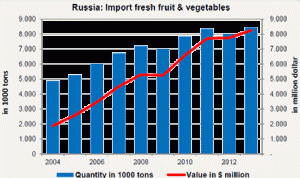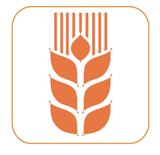Air temperature in the majority of regions of Krasnodar Krai decreased to 4-5 degrees below zero on the night of March 30th/31st.
On the previous day the Press Service of Southern Regional Center of the Ministry of the Russian Federation for Civil Defense, Emergencies and Elimination of Consequences of Natural Disasters said about probability of emergency situations connected with damages and losses of agricultural crops (flowers and sets of early stonefruit and pomaceous fruit crops, potato plants) as well as heat-loving plants.
According to Fruit-Inform data, such a sharp fall in temperature negatively affected stonefruit plantations in Krasnodar Krai, but had almost no impact on apple orchards. Local growers say of apples to start blossoming at least in a week. Before that, a cold spell does not constitute a serious danger for apples, as a decrease in temperature is critical during the periods of budding and blossoming.


